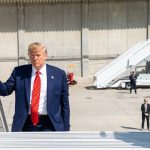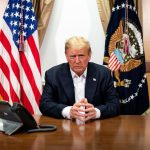The Trump administration is gearing up to take possession of yet another one of Venezuelan President Nicolás Maduro’s flying contraptions, currently taking up space in the Dominican Republic. U.S. Secretary of State Marco Rubio, who is evidently not short on ambition, is expected to announce this aerial acquisition during his swing through Latin America. This marks a continuation of the administration’s tough-on-tyranny approach, and it seems they’ve got their eyes set firmly on those who dare to cross Uncle Sam.
To get this plane seizure under way, Rubio had to clear some bureaucratic hurdles, mainly signing off on a foreign aid freeze waiver to cover the over $230,000 bill for storing and maintaining this piece of hardware. Naturally, getting the Justice Department involved was also required. After some quick work behind the scenes, that waiver got the green light, making the announcement possible—though the event has been described in the most thrilling of terms: a mere “law enforcement engagement.”
U.S. plans to seize Venezuelan President Nicolás Maduro’s plane held in Dominican Republic during Marco Rubio visithttps://t.co/sm4AwbwpiB pic.twitter.com/qj4VnmronM
— The Washington Times (@WashTimes) February 7, 2025
The aircraft in question is a snazzy Dassault Falcon 200, a favorite of Maduro and his inner circle, apparently utilized for globe-trotting to destinations that include Greece, Turkey, Russia, and the ever-popular vacation spot, Cuba. These jaunts have been described by the U.S. as blatant violations of American sanctions, but one must admire the audacity of Maduro, turning his own jet-set life into a political statement.
This latest plane-grab follows hard on the heels of a visit by Richard Grenell, President Trump’s special envoy to Venezuela. Grenell went to Caracas with the ambitious agenda of discussing the repatriation of Venezuelan nationals who took an unfortunate detour into the United States. He returned with six Americans who had been caught in Maduro’s clutches, creating a narrative of American strength and diplomatic prowess in contrast to the Venezuelan regime’s chaos.
Interestingly, this is not the first time the U.S. has taken an airplane away from Maduro’s clutches. A different plane was snatched from the Dominican Republic back in September, allegedly purchased through a Caribbean-based shell company. The audacity of Maduro’s associates to even think they could pull one over on the U.S. with such shenanigans shows how far they’ve strayed from reality, if indeed they ever had a grip on it.
In a snazzy twist of diplomatic drama, there are also murmurings about U.S. Navy vessels getting the run of the Panama Canal for free, but that news has been met with a swift rebuttal from Panamanian President José Raúl Mulino, who seemed to burst that bubble before it could float too high. It’s a classic case of political miscommunication, reminiscent of President Trump’s past grievances about the canal and its relationship with the significant influence of China. It would seem that, just like Maduro’s jets, geopolitical maneuverings never get old in the thrilling world of international relations.




